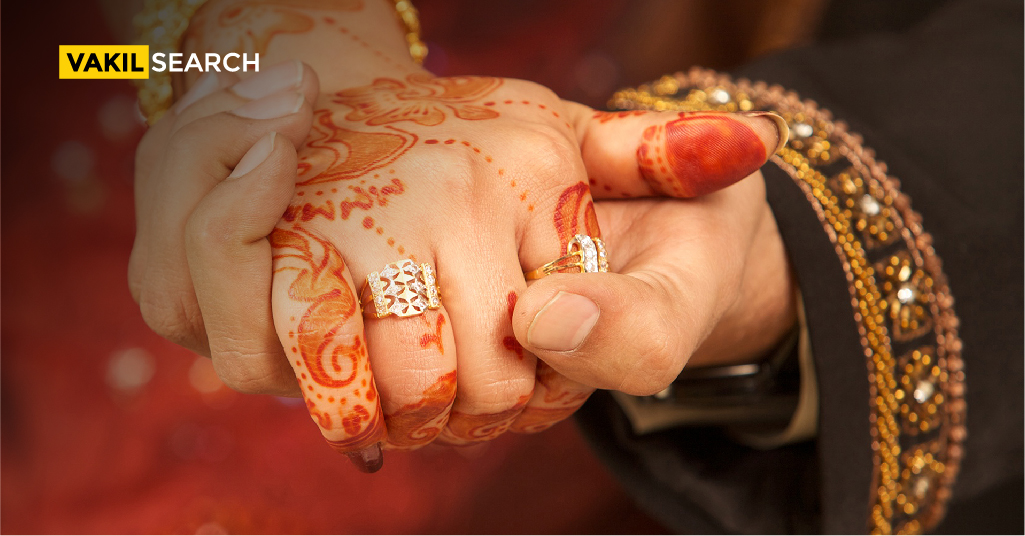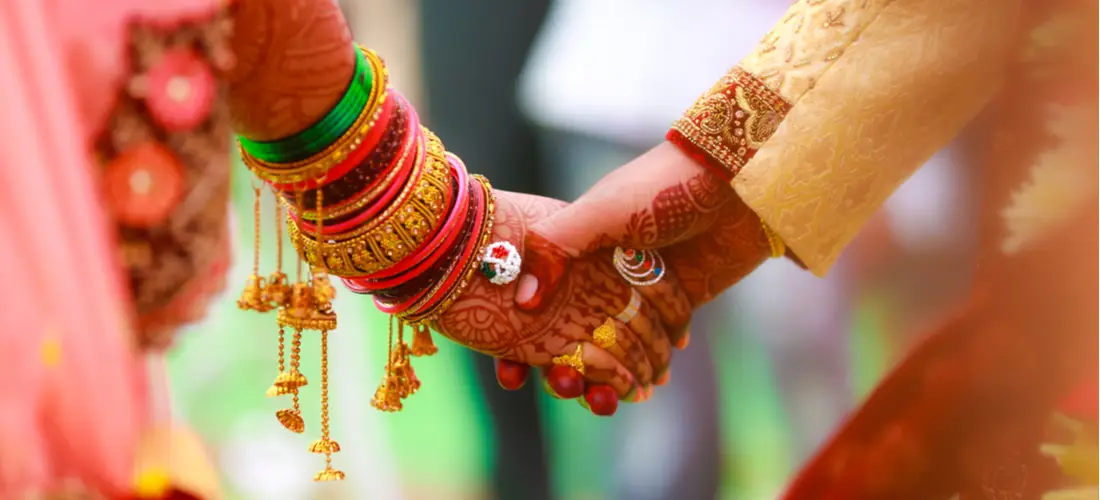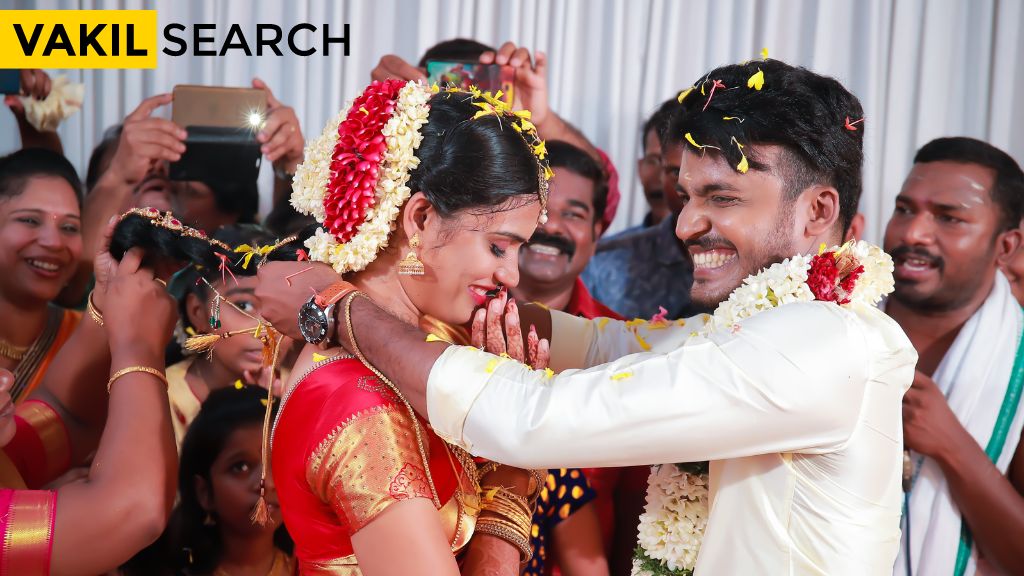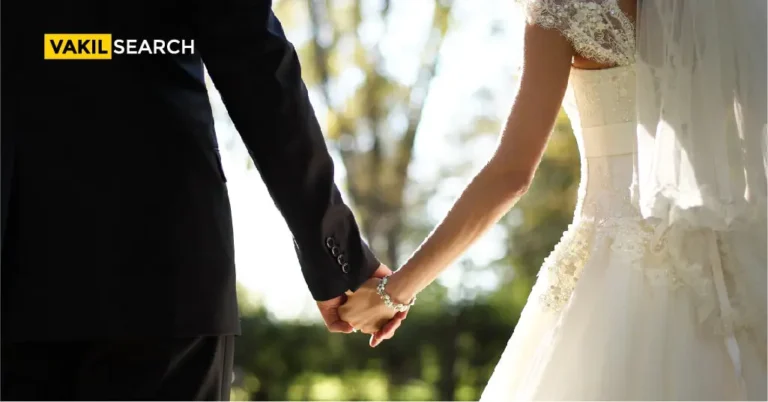To register the marriage procedure for lovers, all you need to follow are a few basic steps discussed in this article. Read this blog to find out minute details about India's marriage registration process
In India, the norm of marriage registration has been mandated by the law. It is the only legal, supportive document that speaks for marriage authenticity between two eligible adults. People often search for registration marriage procedures for lovers over the internet, particularly those whose parents are unwilling to give consent for marriage. We must remember that two adults belonging to any religion or caste can marry each other, abiding by the rules stated by the Indian Marriage laws. An Indian is also allowed to marry a foreigner.
If you are among those who are searching for marriage registration guidelines for lovers on their web browser, then you have come to the right destination. At first, we must confirm that both the registration procedures be it for normal marriage or in the case where parents are not willing to participate in the marriage ceremony, are the same. Moving forward in this article, we are about to share a host of important inputs you may note down for future assistance regarding marriage registration in India.
Register Marriage Procedure In India For Lovers
We can break down the whole marriage registration plan into six different portions. A brief explanation of each part has been shared below:
- Notice issued for desired marriage: These are the foremost criteria that need to be met by the intended couples. Please note that this official statement must abide by Section 5 of our Indian Special Marriage law (1954). Written consent for marriage should be sent to the marriage registrar’s office with the signatures of both spouses. This notice is delivered to the office of the district registrar. Here the catch is the couple needs to stay at least one month in the district where they will be opting to marry.
- Publishing the notice: This is the second step to registering the marriage procedure for lovers in India. After publishing the notice, the marriage registrar retains the original specimen inside the notice book. When the notice gets delivered to the wrong office, it is redirected to the district registrar where the spouses are staying. This is to ensure that the notice gets published at the right location.
- Objection to marriage: During the one-month window before marriage solemnisation awarded by the marriage registrar, anyone can raise an objection against the particular marriage based on section 7 of the Special Marriage law.
- The formal announcement of both the individuals and respective witnesses: Court marriage reaches approval status once the formal declaration of both spouses and their witnesses are recorded in front of the registrar. A legal form must be signed by both the husband and wife and their witnesses.
- Location and type of solemnisation: Section 12 of our Indian Special Marriage law defines that a marriage can be solemnised either at the office of the marriage registrar or at any location decided by both parties.
- Procedure for issuance of a marriage certificate: At the end of the registered marriage procedure for lovers, the registrar duly records all the marriage specifications that are essential for the event of awarding a marriage certificate. This certificate is the legal embodiment of a marriage that plays a vital role in the following years when the couple jointly applies for any further document approval; it also comes in handy at crucial moments, for example, in situations where both the couples sought for divorce.
Who Are Eligible To Sign As Witnesses
Any adult who is a friend, family member, relative or even colleague can witness the registrar’s marriage. Generally, three witnesses shall be present from both sides to register the marriage ceremony of lovers in India successfully.
The witnesses must present each of the following documents to sign on the court paper:
- Current residential address proof
- Recent passport-sized photo ID
- PAN card details
Time Needed To Register Marriage Procedure For Lovers
Usually, the entire course of formal activities gets over within 1-2 months. This time is calculated once the marriage registrar publishes the notice in the office and gives one month for any possible objections that any party could proclaim. If the marriage is not fulfilled within 90 days following the issuance of the notice, then the couple must apply for the registration process once again.
Marriage Registration – Types
In India, marriage registration takes place by abiding by one of the two below-mentioned laws:
- Special Marriage Act
- Hindu Marriage Act
The terms that have to be met for marriage solemnisation under the Hindu Marriage law are as follows:
- The bride should be at least 18 years old at the time of marriage. The minimum age of the groom should be 21.
- No party involved must have a spouse alive on the date of marriage.
- Neither the husband nor the wife should be mentally unstable at the marriage ceremony.
- Under Hindu Marriage law, both the spouses should not be related to each other in a bloodline relationship, i.e., they must not be sapindas.
Why Marriage Registration Is Mandatory In India
A marriage certificate is issued by the state marriage registrar only when the couple has registered their marriage, abiding by any of the two aforesaid Marriage Acts. This certificate always proves to be relevant when appealing for a VISA/passport or when converting the wife’s maiden name after marriage, and so on. This marriage registration certificate legally binds you with your better half. The Indian Government has mandated the issuance of the marriage certificate owing to the alarming rates of cases filed against domestic violence and injustice cast upon Indian women across all parts of the country.
Conclusion
Vakilsearch conveys the right knowledge about the procedure of marriage registration in India, specifically in simple terms for those who belong to a non-judicial background. The intended couples need to have the affidavit for successful registration. This written document is a form of self-declaration that specifies that both the parties agree to the norms of the Hindu Marriage law or the Special Marriage Act. Lovers have the right to choose their life partner; all they must ensure is to register their marriage to get an authentic marriage certificate as protection or legal acknowledgement of their marital status.
Read more:










